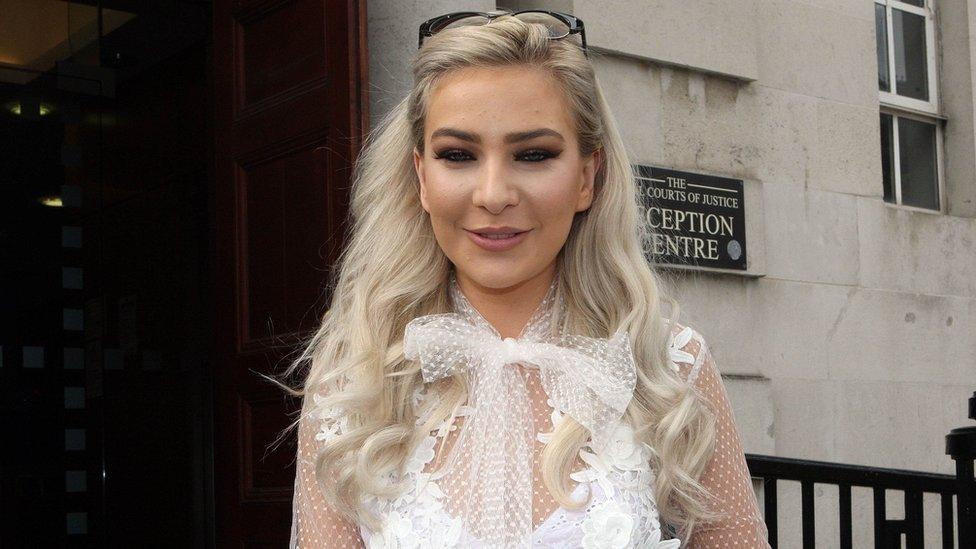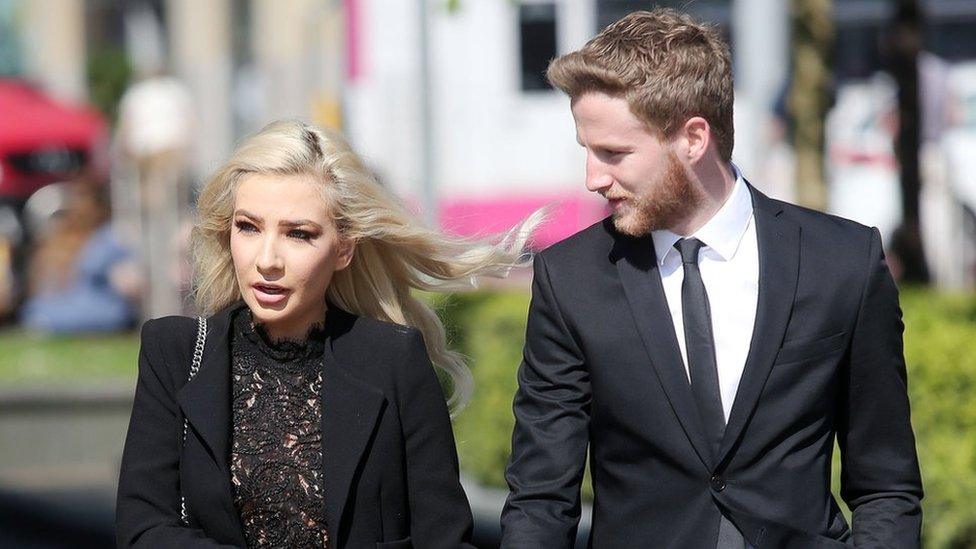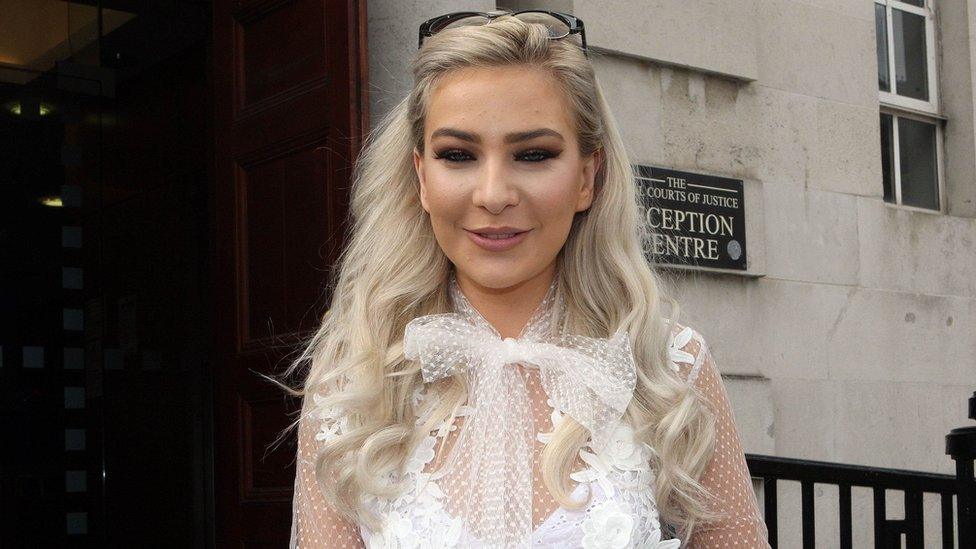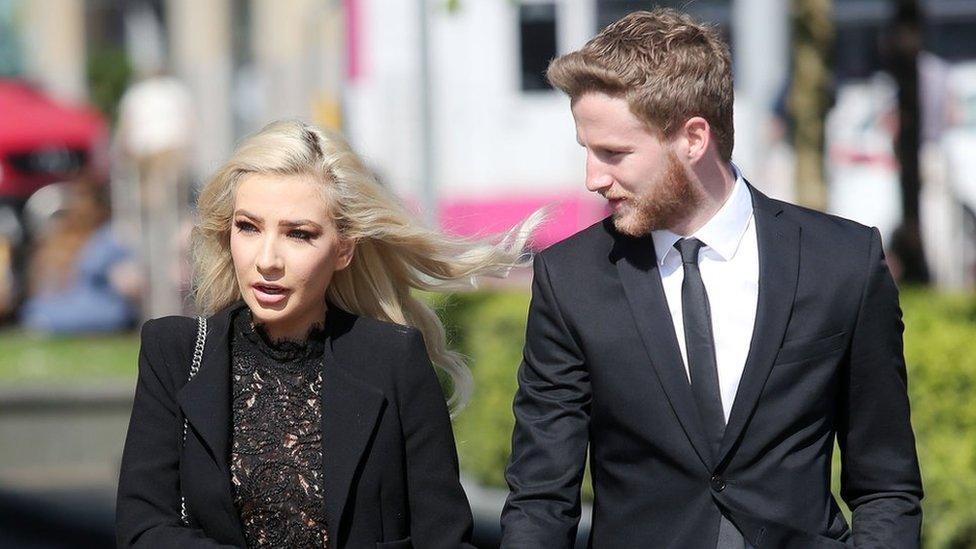Humanist marriage: Model suffered 'discrimination'
- Published

Laura Lacole is vice-chair of the organisation, Atheist NI
The Court of Appeal has ruled that Belfast model Laura Lacole suffered discrimination when her application for a humanist marriage was refused.
In 2017, she won a High Court challenge to the refusal to grant official status for her wedding ceremony.
However, that decision was appealed and on Thursday judges found that the law at present can be interpreted to allow humanist celebrants to register.
Couples can apply for temporary authorisation of a humanist celebrant.
Ms Lacole and her now husband Eunan O'Kane have been campaigning for legal recognition of humanist marriages in Northern Ireland for the last two years.
Their case was taken to the High Court in Belfast in June 2017 and was a landmark legal battle that resulted in the couple getting interim authority to have a legally-recognised wedding conducted by a celebrant of choice.
However, Attorney General John Larkin QC and the Department of Finance appealed the verdict and its wider implications.
According to Mr Larkin humanist couples will suffer no discrimination under current legislative arrangements.
He argued that the 2003 Marriage Order includes provisions for the solemnisation of civil marriage - ensuring no breach of the European Convention on Human Rights.
Delivering judgment today, Lord Chief Justice Sir Declan Morgan allowed the appeal by setting aside the declaration of incompatibility with human rights legislation.
Sir Declan pointed out that it is the Registrar General's responsibility to avoid discrimination in relation to a marriage celebrant's background.
"If the Registrar General is satisfied that a couple want a humanist celebrant to officiate at their marriage or civil partnership in order to express their humanist beliefs he should accommodate that request if content that the proposed celebrant will carry out the solemnisation of the marriage according to law," the judge said.
"Whether or not the authorisation should be for a single marriage or a period of time is a matter for the judgement of the Registrar General exercised lawfully."
The court accepted the statutory prohibition of a humanist celebrant solemnising Ms Lacole's marriage would have constituted discrimination under human rights law.

Laura Lacole married Leeds United's Eunan O'Kane on June 22 2017
Speaking on the ruling, Ms Lacole said: "This outcome is a massive positive - hopefully now it will not just be Eunan and I that can have a legally recognised humanist marriage."
Ms Lacole's solicitor, Ciaran Moynagh, said the outcome means the authorities must now consider applications from humanist celebrants to conduct legally recognised ceremonies.
He said: "The court has found an existing provision that enables such applications and allows the government to act impartially.
"They can't just have a blanket policy of refusal."
- Published9 June 2017

- Published26 May 2017

- Published9 May 2017
